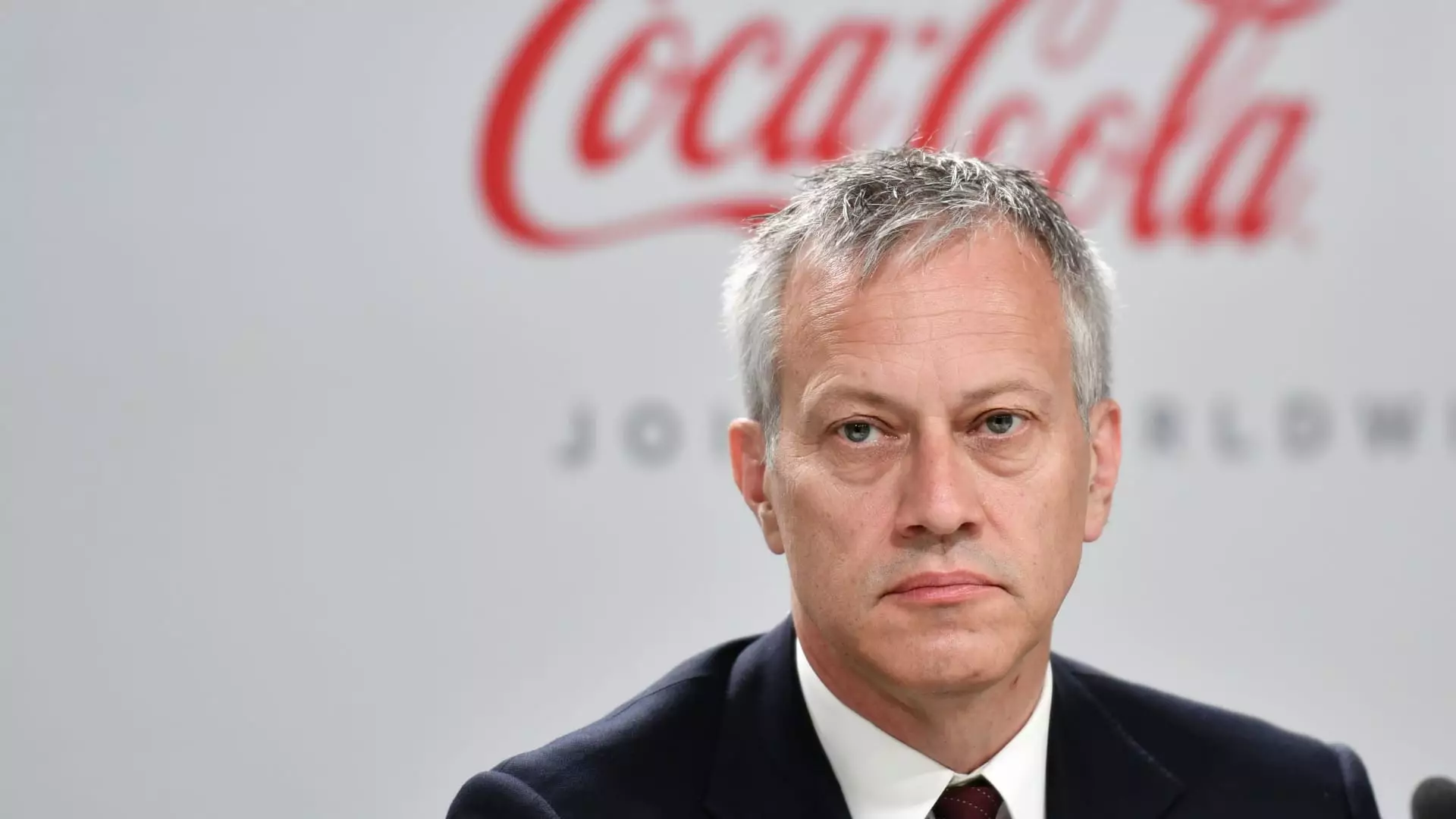In the complex landscape of the food and beverage industry, the bond between giants like Coca-Cola and McDonald’s is both strategic and critical. This partnership is not just about the aesthetics of a Cup beside a Big Mac; it represents decades of collaboration and mutual dependence. Recently, Coca-Cola’s CEO, James Quincey, emphasized that the beverage company does not anticipate a significant impact on sales due to an E. coli outbreak linked to McDonald’s Quarter Pounder burgers. His statements reflect not only optimism but also an acute understanding of market dynamics and consumer perceptions.
Quincey’s assertion—that current media reports suggest limited repercussions for the beverage giant—highlights the sometimes-elevated perception of risk that comes with food safety incidents. It poses the question: how well can brands withstand crises that are outside their direct control?
The Centers for Disease Control and Prevention (CDC) announced recently that the E. coli outbreak identified in ten states was connected to McDonald’s Quarter Pounder burgers. With reported cases amounting to 49, including a fatality, the potential for consumer backlash looms large not just over McDonald’s but also over its partners. Coca-Cola, while independent, stands to face crosswind effects, especially given the deep-rooted relationship with its largest restaurant customer.
In the face of this public health crisis, McDonald’s swiftly removed the Quarter Pounder from their menu in affected areas, showcasing their commitment to consumer safety. Coca-Cola’s willingness to support McDonald’s during this period, as expressed by Quincey, indicates a proactive stance towards crisis management. The interconnectedness between the two corporations suggests that both parties are under an umbrella of shared risk, and thus their fortunes may rise or fall together.
As Quincey pointed out, the current environment has already seen a decline in consumer spending within restaurants. The marketplace is dynamic, with fast-food chains grappling with shifting customer behaviors—particularly in a climate that has seen inflationary pressures squeeze household budgets. Consumer concerns about food safety can further complicate this landscape, potentially shifting spending patterns away from establishments perceived as risky.
Coca-Cola’s recent financial performance, where their third-quarter earnings exceeded Wall Street estimates despite this challenging environment, points to an interesting resilience. Higher pricing strategies seem to be working, safeguarding Coca-Cola’s bottom line while they continue to support McDonald’s in marketing initiatives. This reflection also raises questions about the long-term effects of balancing rates with consumer satisfaction.
Coca-Cola and McDonald’s have continuously thrived by embracing their partnership for mutual growth—illustrated by Coca-Cola’s involvement in the promotion of McDonald’s value meals. Such marketing collaboration underscores the importance of adaptability in the face of adversity. By directing resources to help McDonald’s navigate the repercussions of the outbreak, Coca-Cola not only protects its brand but also reinforces the strength of its long-term relationship with McDonald’s.
Moreover, it is worth noting how Coca-Cola’s strategies are often buoyed by its adaptability to market conditions. The company’s ability to diversify its offerings and innovatively engage consumers, even amid economic headwinds and health scares, signifies a bright outlook. In these uncertain times, the brand loyalty that consumers have for established giants like Coca-Cola can act as a cushion against the ongoing turbulence affecting the fast-food sector.
As this recent outbreak serves a stark reminder of the fragile nature of public trust in food safety, companies like Coca-Cola and McDonald’s must remain vigilant. Their intertwined destinies demonstrate that crises must be managed through swift, transparent action and strategic partnership reinforcement. The resilience shown not only safeguards against immediate financial fallout but also preserves brand integrity in a competitive and ever-evolving market. Looking forward, these lessons highlight the imperative for continual adaptation in strategy, ensuring a robust response to any crisis while cultivating enduring consumer confidence.

